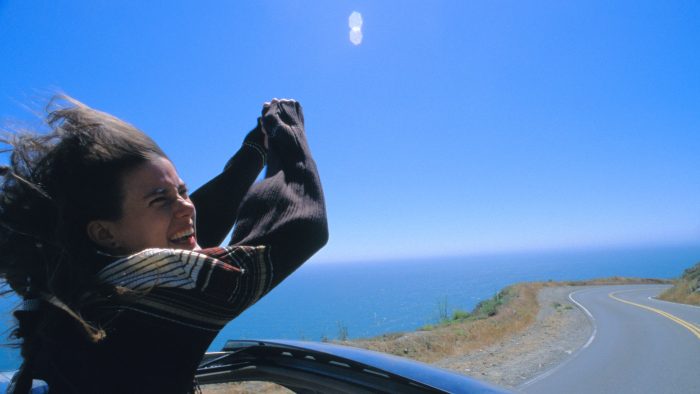Having spent many years sojourning throughout the world, I’ve noticed a distinct difference between tourists and travelers.
Tourists descend upon a place to consume it. They ask, “What does this place have to offer me?”
Travelers, on the other hand, look to be consumed by a place. They ask, “What can I offer it?”
In this sense, tourists may set themselves up for disappointment, while travelers tend embrace whatever life throws at them.
Ultimately, the main difference between the two is their relationship to time. Tourists rush from place to place, rarely straying off the beaten path. They experience themselves far more than their surroundings. Travelers slow down, get out of their own way, and allow the spirit of place to imprint upon them. Most of us exhibit both tendencies, whether we’re exploring exotic locales or our own back yard. Learning to embrace a traveler’s ethos, however, can turn your next vacation into an adventure and your entire life into a mystical journey.
Here are four tips to help you deepen your relationship to place:
- Make Macro Plans, Not Micro Plans
The biggest limiting factor in our lives is our penchant for control. In an effort to secure our and our loved ones’ safety, we tend to micromanage situations. This may take many forms, from obsessing over travel details, to subtly dominating conversations and coercing others in order to get what we want. The real challenge is to be aware that we’re manipulating things, often unknowingly and unnecessarily, and that it’s causing undue stress. Worry and mysticism don’t mix, as anxiety, mind-chatter and bodily tension muddle our connection with our inner voice, imagination, and the realm of infinite possibility. For your next trip, you might experiment with not mapping out your day-to-day activities. Instead, create a general itinerary, trash the tourist maps, trust your intuition, and see what arises when you’re in a new place for a long time with nothing to do.
- Stay Put
Sightseeing is a surefire way to see virtually nothing. If your vacation is built upon bouncing from place to place to take selfies, you’ll never experience the essence of the place itself. This takes time and lots of patience. Unless you’re looking to spend your entire journey in transit, which can be a valuable experience under the right circumstances, better to root down in one spot and get to know it intimately. Attune with the local rhythm, discover where you’re drawn, who you’re drawn to, and dedicate your time to spiritual growth. Case in point, on a recent visit to Hawaii, I decided to hit the same, quiet beach every morning, rather than island hop. Not only was each morning utterly unique—different weather, different people, different waves, different colors, different emotions—but, after several days, a pod of dolphins appeared and let me swim with them for an hour. It was a once-in-a-lifetime experience that continues to fill me with wonder months later. Had I merely “done” the beach and moved on, I would’ve missed them. Good things come to those who wait.
- Practice Time
The real boon of staying put and not being a slave to your plans is that it affords you time to practice. Your practice is a key that will unlock hidden doors in yourself and your surroundings. Ideally, your spiritual practice helps you drop into your body, reminds you to slow down, piques your senses, opens your heart, and invites in the unknown. Trust that as you tap into yourself more deeply, you will begin to resonate with like energies and experiences, much like a tuning fork. Imagine that the place you’re visiting is a conscious organism with its own spirit or energy field. Your practice serves as an offering—the place itself will take notice and reciprocate. Also, your practice time helps you integrate all the new information you’re taking in and establishes good habits that will stay with you long after you’ve returned home.
- Journal Your Dreams
In my experience, one of the most interesting things about traveling is how it impacts our dreams. New places strike us in unique ways, and dreams respond in kind. While dreaming, you’re likely to experience novel scenarios with complete strangers, or gain a fresh perspective on aspects of your life that are important. Staying connected to your dreams turns your life, and especially your travels, into an ongoing vision quest. When you’re in unfamiliar surroundings, your chance of having lucid dreams, or dreams in which you know you’re dreaming, also increases on account of your being more alert. Most fascinating for me have been dream experiences where I believed I tapped into unseen dimensions in the place itself, received visits from local spirits, and learned things about myself and others that I couldn’t possibly have known otherwise. For example, while on a camping trip, I dreamt that I was visited by a neighboring camper I’d met only briefly prior to bedtime. That night, I dreamt that she flew from her tent to mine and spoke to me in French, which I didn’t understand. In the morning, I shared the dream with her. While she didn’t recall the visit, she did confirm that she speaks French fluently. Dreams allow our minds to roam free, and sometimes they run into something other than ourselves (at least who we think we are).
If we can accept that the places we visit may have a certain spiritual vitality lacking at home, we open ourselves up to a world far more mysterious than we could ever imagine and to experiences that can forever shape the course of our lives.







Read 2 comments and reply